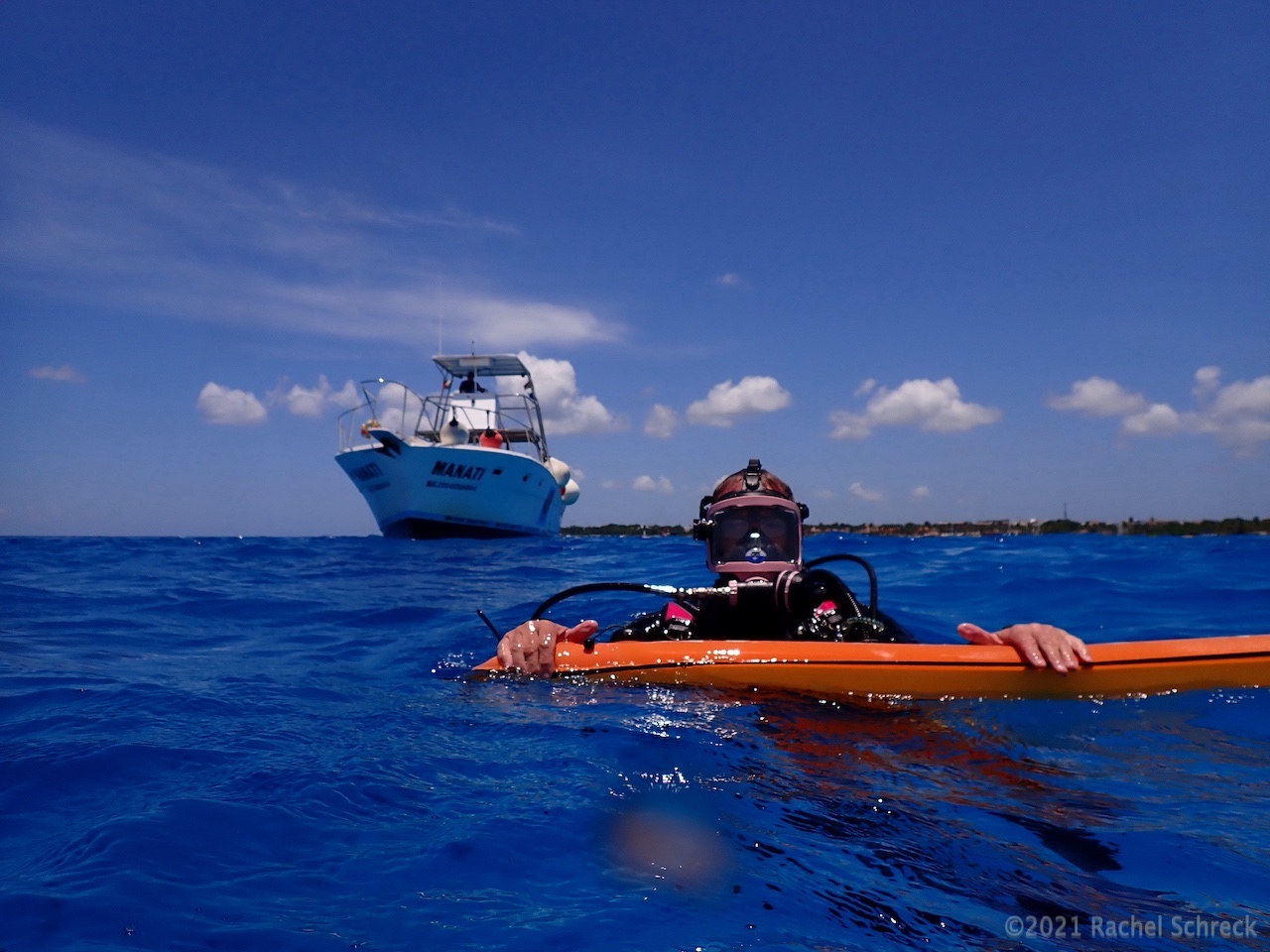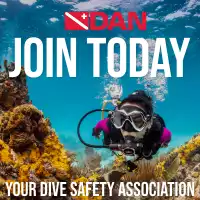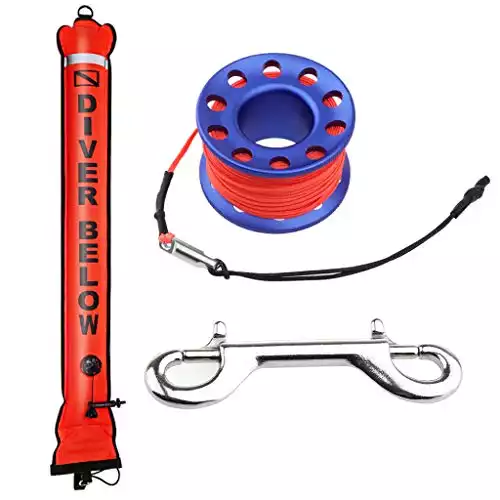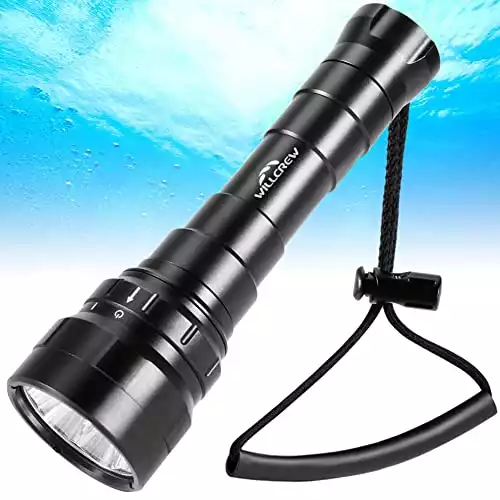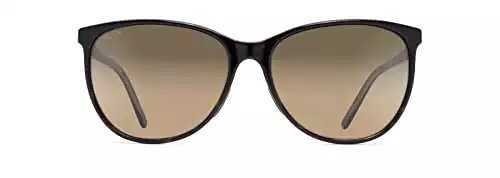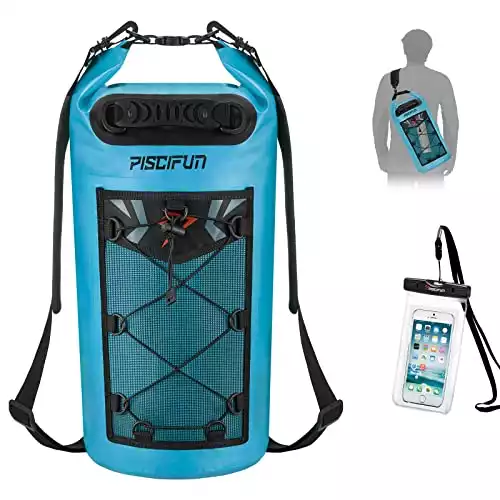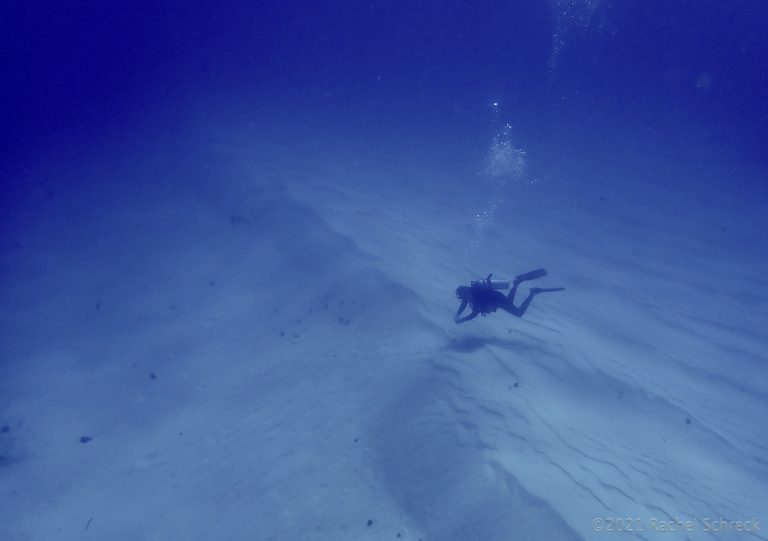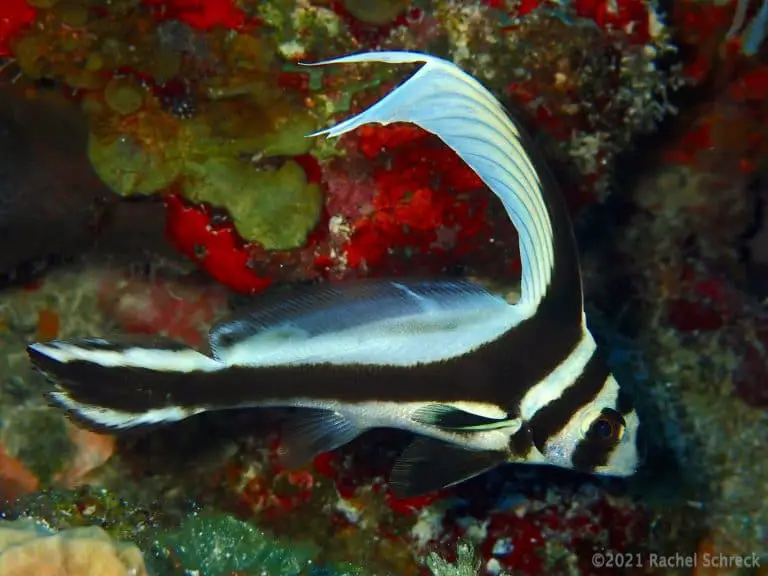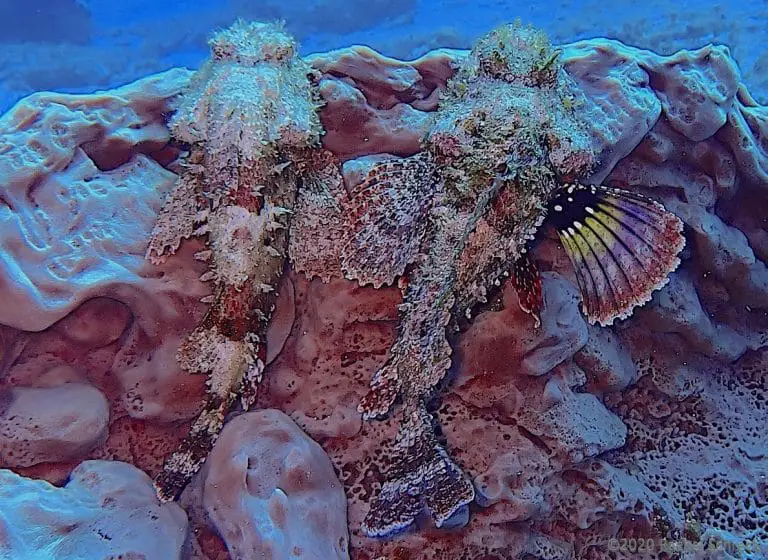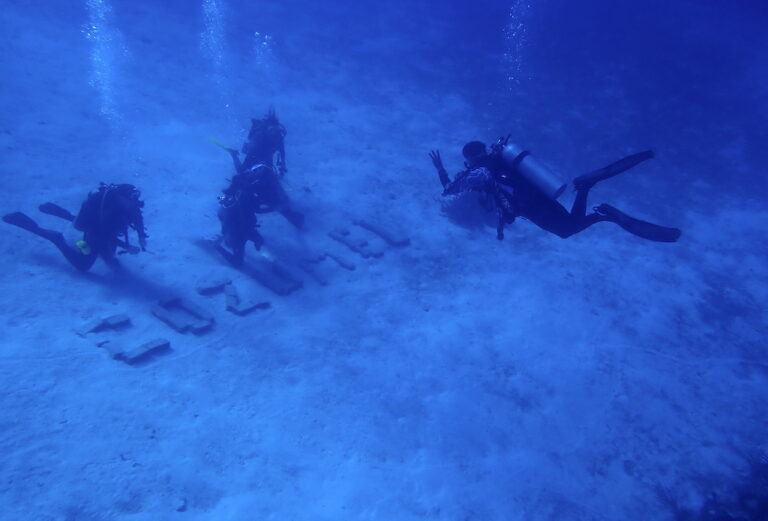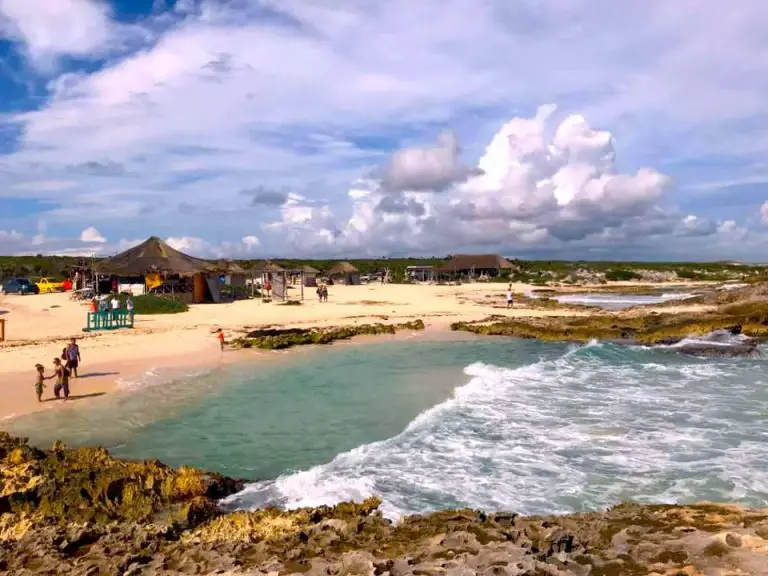Cozumel Diver Safety: Important Scuba Safety Equipment to Pack
Safety is key when it comes to SCUBA diving. If you’re an experienced diver or just starting out, having the right equipment can mean the difference between a fun successful dive and a potentially disastrous one.
I’ve shared some helpful info on local Cozumel retail dive equipment shops where you can find any gear or dive accessories you may have forgotten.
But which key equipment should you have to stay safe while diving, in the first place?
In Cozumel, there are a lot of reasons the SCUBA diving is phenomenal.
We’re blessed with warm water, good visibility, very little ocean debris, and a big diving culture where everyone – including doctors and hospitals – is dive savvy and ready to help. So we start out in a pretty great spot, safety-wise.
But there are still some Cozumel-specific scuba safety measures you need to bring with you.
Some are cool gear and accessory items, and the others involve your training and mindset. But all are things you’ll want to consider and have onboard with you on your next Cozumel dive trip.
And if you have questions about Cozumel safety in general, read more here on the island’s (great) safety status in 2023.
Most Important Dive Safety Gear to Pack for Cozumel
Open Water Diving Certification
First and foremost: An up-to-date open water diving certification from a good quality instructor is the primary thing you’ll want to have with you, and the most important dive safety item you’ll possess.
Open water certification is something that you need to earn via taking your full open water diving class from an accredited body, namely NAUI, PADI, or SSI.
The course includes basic skills and knowledge of pressure and the risks of nitrogen absorption, avoiding deco, and other knowledge that will keep you aware and safe.
Your class should include lots of pool/confined water practice time, a review of important hand signals used underwater (namely “how much air do you have left”?), and other essentials to bear in mind before embarking on a dive trip, in order to ensure maximum safety.
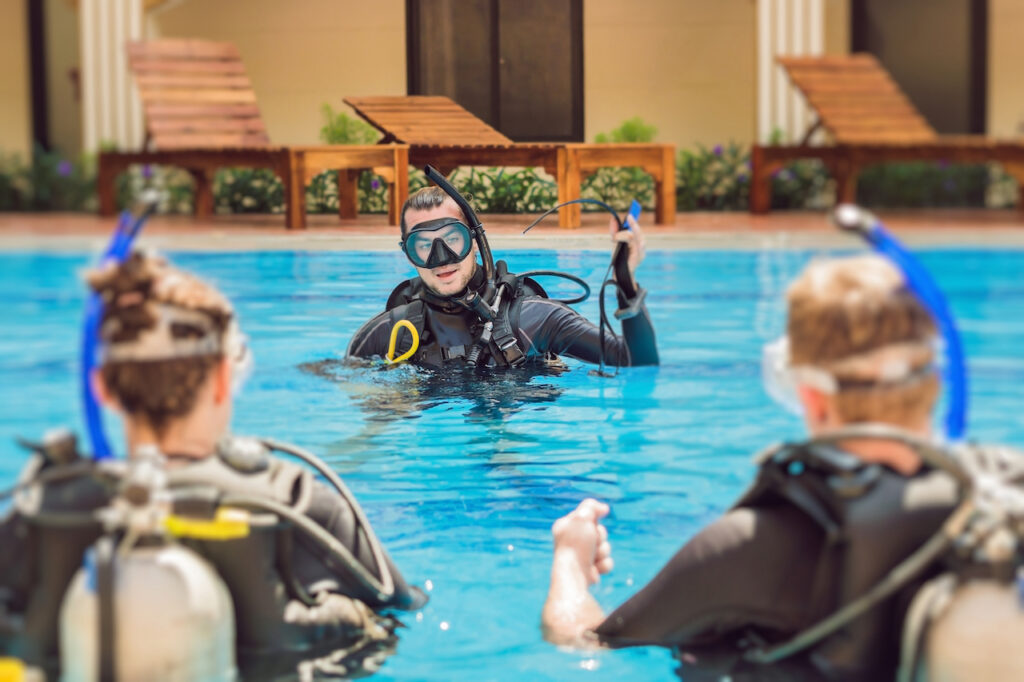
Furthermore, certified divers should be familiar with all relevant regulations and diving best practices at the specific geographic area where you’ll be diving.
In Cozumel, much of that information will be given during each dive briefing from your divemaster here, so please pay attention to those as each dive site has its own topography and unique dive profile.
Regular refresher courses are necessary if you haven’t been diving in over one year, or if you are at all rusty or you lack some confidence with certain skills (I’m looking at YOU mask removal and clearing your mask at depth).
If you want to take the course work in Cozumel, here’s a good list of tips and questions to ask when shopping for your ideal dive shop in Cozumel.
DAN Diver Insurance Membership
When it comes to scuba diving safety equipment, DAN Alert Diver Insurance Membership is an invaluable investment.
With a DAN membership plan, divers are able to access a range of dive-travel related coverage benefits and services that will ensure their dives are as safe and enjoyable as possible.
Four main reasons you should have the DAN Diver Insurance Membership, especially if you’re about to embark on dive travel:
- 1) DAN membership includes coverage for dive accidents and injuries in-water and on land and will cover expenses related to hyperbaric chamber treatments. Not likely, but expensive if you need them, and not typically carried by your base health or travel insurance
- 2) You’ll be covered for expenses incurred due to a dive-related accident, and eligible for transport to your home country or to the nearest hyperbaric chamber (see all current terms and quoted coverage before signing on the dotted line. but it’s very good.)
- 3) You can qualify for discounts when you purchase other riders to increase coverage on dive equipment and trip insurance
- 4) Primary hospitals with hyperbaric chambers in Cozumel all work closely with DAN, so as a DAN member they’ll be in contact with leading dive-medicine pros in Mexico and the US, coordinating your care (and it’s recognized at ALL major diving centers and destinations, worldwide)
DAN Diver Insurance also offers peace of mind knowing that if anything were to go wrong while out on a dive, even something minor, membership gives you access to knowledgeable advice from live dive medicine experts, via web and phone, 24-7.
If you don’t have it yet, visit DAN here to sign up. The cost is peanuts compared to the value it provides.
The most important piece of dive gear in your kit.
Well-Fitting Scuba Dive Mask
A scuba mask needs to fit YOUR face perfectly.
It doesn’t matter what the coolest new model is, or which one your mentor uses. The mask you use has to be sized well for your face, so the contours work with our particular bone structure, and it doesn’t pinch anywhere or rub your nose the wrong way, etc.
Simple three-step process for fitting SCUBA dive mask:
- Try on a bunch of different styles of dive mask at your local dive shop (LDS)
- Without using the strap to hold it on, put each mask up to your face and inhale slightly via your nose to create mild suction that will keep the mask on your face, and then let go –
- If the mask stays firmly in place and fits your cheeks and temples without much air escaping, and there are no obvious points of pinching or discomfort, that is likely a mask that will work well for you.
Ideally, you could try on the same make and model in a pool before you finalize the decision, but if it passes the major tests, it should work well. (and if you fall in love with another one, later (bound to happen), you can keep this one as a backup. Win-win.
Once you have your well-fitting dive mask, take good care of it.
This will be the thing that helps you see, navigate, and communicate under water. Safety equipment, indeed.
Using a poorly fitted mask can lead to discomfort, fogging so you can’t see clearly, pain around your nose, headaches if too tight, and in the worst case scenario, it can put your safety at risk.
Helpful Steps When Sizing Your New SCUBA Mask:
- Try on multiple styles, shapes, and sizes of dive mask until you find one that fits snugly against your face without leaking or feeling too tight
- If possible, test out different diving masks in a pool before making a purchase decision
- Make sure it’s comfortable enough to wear for long periods of time – especially if you’re planning an extended dive
When shopping for a scuba mask, fit and comfort should always come first!
Don’t be afraid to take your time trying on various models so you make sure you select one that fits perfectly and keeps you safe while diving.
The investment will pay off in peace of mind during every dive.
Dive Computer with Fresh Batteries
A dive computer with fresh batteries is an essential piece of safety equipment for any scuba diver. Some would put it at #1 in your diving equipment.
Dive computers provide important information such as depth, bottom time and air consumption while calculating your estimated nitrogen load, how long you have before you enter “deco,” and how long to do your safety stop, etc.
Dive computers on the market offer a wide range of features, but most do the same basic thing: monitor your bottom time, your air consumption (if integrated), and your depth during the dive, so it can alert you as you need to ascend and off-gas the nitrogen that’s been absorbed into your bloodstream.
Unless you’re doing technical diving, multiple gas mixes, and other very advanced dives on SCUBA, you don’t need the most expensive and complicated computer on the market.
Here are some of the key features to insist on when getting your first dive computer:
- Clear display that you can read well
- Ideally one that works with air and Nitrox (most do this)
- Safe diving algorithms
- Instructions that you can understand and follow
- The ability to change your own batteries (some make you send it back in for this “maintenance service,” and I just think that’s unnecessary and could leave you in a pinch)
- Good peer reviews
- A decent price point
A dive computer reduces unnecessary risks since its integrated alarms will sound if a diver exceeds predetermined limits, prompting them to take corrective action immediately.
Talk to your dive instructor about what kind of dive computer is best for you and the kind of diving you intend to do. There’s a lot of variation. But again, most long-time recreational divers don’t even need a ton of bells and whistles, unless there is a lot of tech diving in your future.
And you may want to read this mild cautionary tale about forgetting spare dive computer batteries when you pack…and how some local Cozumel stores will have your back.
Proper Fit = Safer Diving Equipment
When it comes to scuba diving safety, having the right equipment is essential.
A properly fitted kit of diving gear can make all the difference in an underwater adventure.
Even if you’re renting your dive gear on vacation in Cozumel, you want to take any extra minutes to find the right fit, so your wetsuit will keep you warm and your BC isn’t moving around on you, etc.
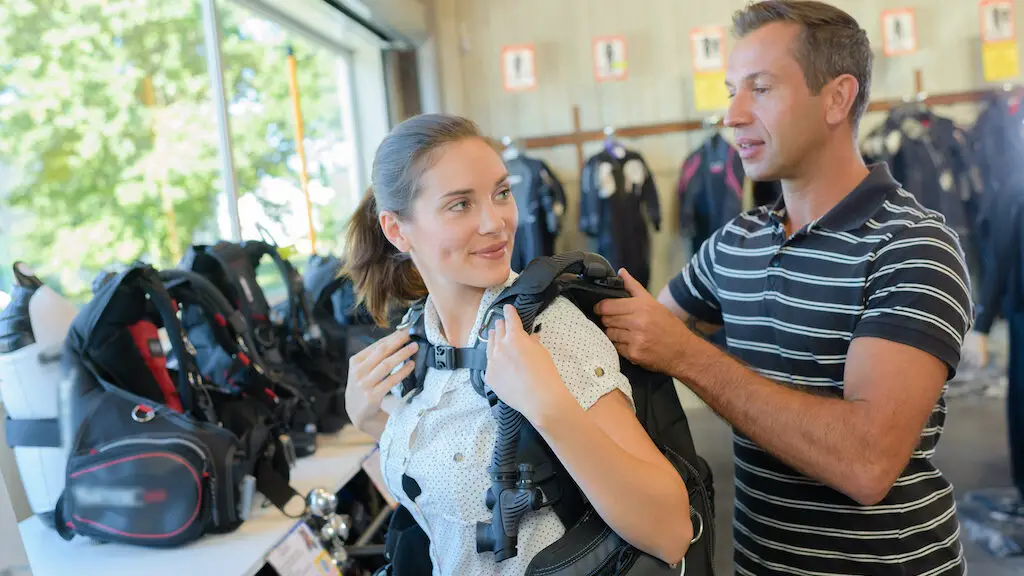
Having the proper set-up that fits your body will make you more comfortable, which in turn lessens any anxiety, and gives you nothing to worry about or fiddle with at depth.
The fewer nagging little problems, the better, as little problems tend to add up when diving. (see “task loading” in your open water diving materials…)
Nip those in the bud, and take your time doing it.
Pay Attention to Your Dive Guide and Boat Captain
Paying attention to your Cozumel dive guide and boat captain is essential for scuba diving safety.
Your Cozumel diving pros will be able to explain the local conditions, assess any potential risks, look out for you during the dive, and make sure that everyone follows proper protocols.
If a diver fails to pay attention when the guide or captain gives instructions, they could put themselves – and their dive buddies – in danger.
OK, now for the actual hardware…
Surface Marker Buoy (SMB)
When it comes to scuba diving safety equipment for Cozumel, a surface marker buoy (SMB) is an important tool.
An SMB is a brightly colored signaling device. It’s a 4-5 ft long personal buoy that floats on the surface of the water. It clearly marks a diver’s location so that boats can see them and steer clear.
As a new diver, no one will expect you to deploy a SMB during the dive, at depth, etc. Leave that to your divemaster, unless you are trained to do so.
But even as a newbie, you’ll want to have a surface marker buoy in Cozumel, as there are occasions when you might drift away from your group in the surface currents, or accidentally need to ascend a little far from the group. Then you would retrieve and orally inflate your SMB so it’s clearly visible, and wait patiently for your dive boat to pick you up.
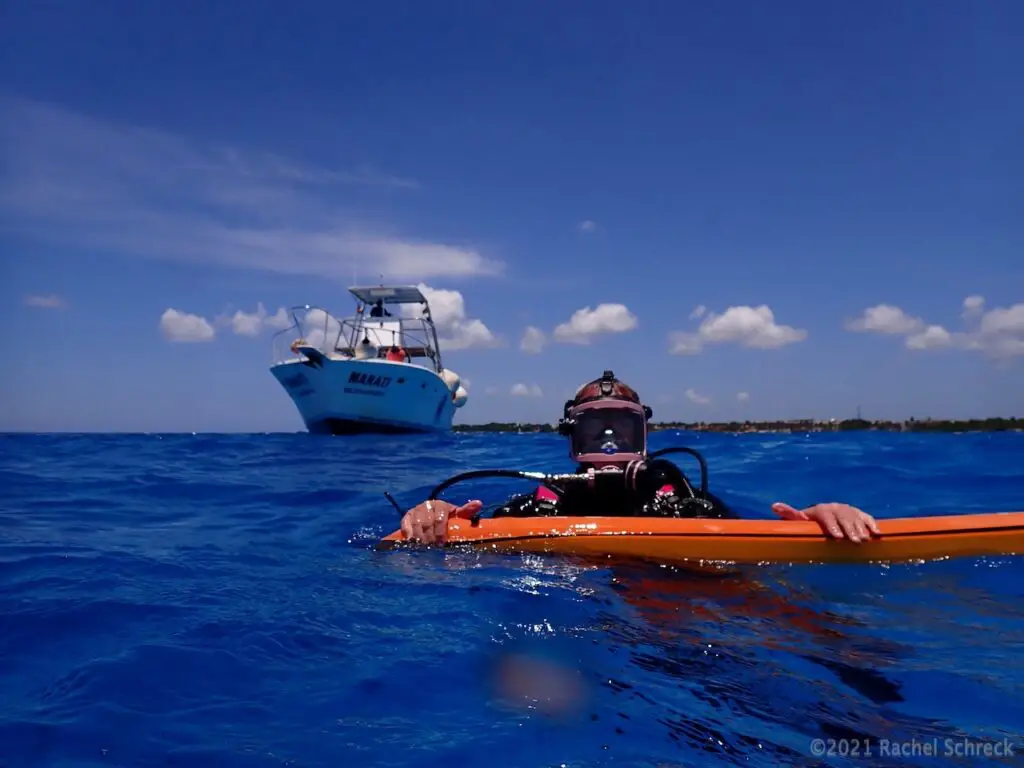
Or you make a plan to do a shore dive, etc. and need surface marker buoy as a way to indicate there is a ‘diver down’ below.
In those cases, unfurling and orally inflating your own buoy is the safest method.
Once you have a good number of dives under your belt, learning how to do an underwater SMB deployment is a super valuable skill. (I found that tricky at first, but it only took me maybe a dozen times before I got a good handle on it, so when the time comes, go easy on yourself and just practice it).
It’s a skill required in slightly more advanced diving courses, but at first, as a beginner, simply having one in the pocket of your BCD or clipped to your gear could come in handy.
Dive Light or Waterproof Flashlight to Signal Buddy or Dive Boat
Dive lights or waterproof flashlights are great to have for peering into cracks in the reef, or looking into sponges to find little critters like these macro spotted cleaner shrimp.
But it’s not required, and could even add to the task-loading we want to avoid with beginning divers.
However, there are times when you might want to signal someone pretty far away under water, or you might need to signal your boat, and a flashlight works best in that case.
Also, depending on your certification level and your adventurous side, you might opt in to a Cozumel night dive, or just do a dive on our main shipwreck site – the C-53 wreck.
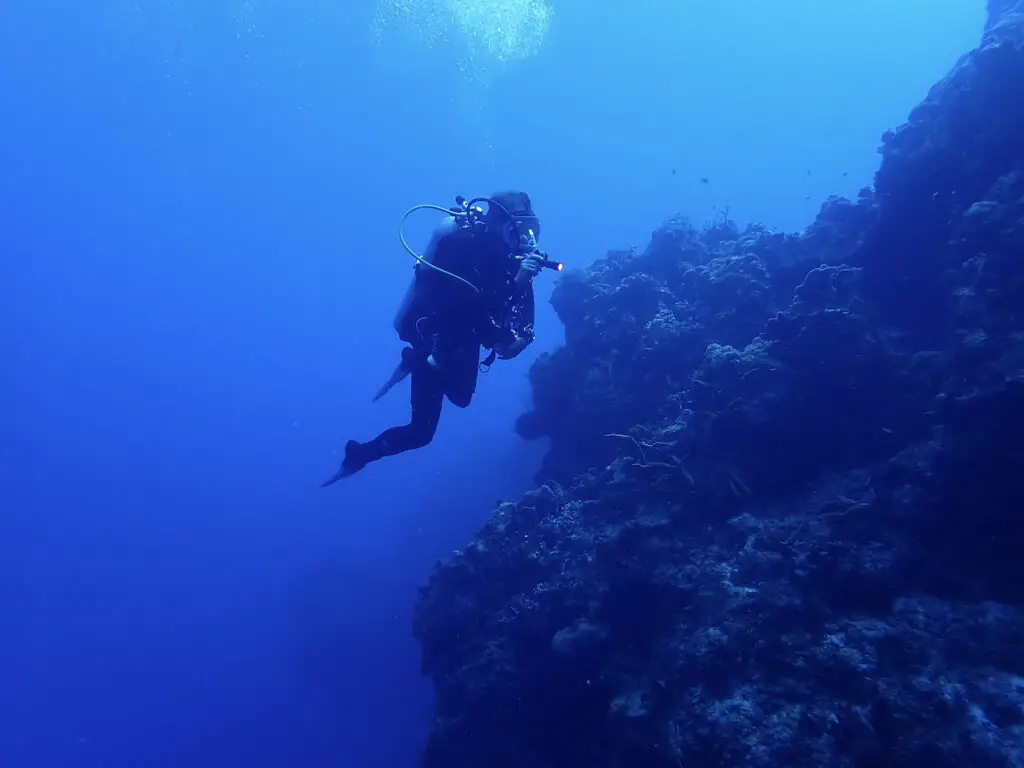
These dives require dive torches, so it’s good to keep your eyes out for high lumen, high quality dive lights as you go, and try to incorporate one into your dive kit when you can.
If you don’t have one, or are packing light, no problem! Cozumel dive shops will have good flashlights to borrow or to rent if you sign up for a night dive, and for $5-10 bucks, you’ll be all set.
This one is something I now consider a standard part of my gear set up but I went several years with vacation diving before I really felt like I needed to buy a good one.
When shopping for a good quality dive torch, you have to go beyond “waterproof.” Look for dive lights with high lumens, an easy way to change the batteries or recharge it, and something that will work well with your existing dive gear.
Good Fitness for Swimming
When it comes to scuba diving, an oft downplayed but important factor to your personal safety is reasonable fitness.
Without decent physical conditioning, a diver can find themselves in dangerous situations and unable to complete their dive safely. Divers should be honest with themselves and make sure they’re adequately prepared before hitting the water.
Exercises such as swimming laps, walking a lot, and doing squats are great ways of improving your overall strength and endurance for diving and for climbing back onto boats via unstable ladders while carrying heavy dive gear and weights.
Also, don’t neglect proper hydration, while we’re at it. Especially if you’re enjoying a few beers or drinks each afternoon, just be honest with yourself, and make sure you re-hydrate and don’t show up for a dive day hungover. Not a good idea.
Noisemaker or Waterproof Whistle
Noisemakers or waterproof whistles are somewhat secondary safety tools for Cozumel scuba divers, but they can come in handy (and are typically pretty cheap).
In fact, many surface marker buoys (aka safety sausages) come in a package with a cheap little orange whistle that many of us just zip-tie to our power inflator hoses, so they’re there at about mouth-level should they be needed.
The scenario is that your boat can’t find you, or some other mishap leaves you adrift, and you can use the whistle to call out to surrounding boats.
That’s not something you really have to worry about when diving in Cozumel, but hey, why not? It’s an easy add, and is good for peace of mind.
Cell Phones to Call for Help
These days, having cell phones on the boat can provide invaluable safety support for scuba divers and dive captains and crews.
Not only can they be used to call an ambulance for help in case of an emergency, but they also allow you to stay connected in the event of a sudden change in plans or weather conditions.
Having a cell phone on hand gives peace of mind that help is never too far away if needed.
Be sure to pack a good dry-bag or dry-box for your phone. While many modern phones are waterproof, I’d still take the extra precaution of using a water-tight and crush-proof box for your phone, so there’s no need to worry about bringing it along.
Check out the one I’m currently using, here, from Amazon.
To double-check for some other safety items to pack with you, including waterproof gear to keep your belongings safe, download our free Packing Lists guide here:
Patience and Zen Attitude
When planning your Cozumel dive trip, the right equipment is only half the battle. What else keeps you safe?
Patience and a zen attitude are also essential components.
As you learned in your open water course, panic is the worst enemy of any diver. Avoid it during a dive, and especially before you even descend.
This means taking your time while preparing for dives, being patient with yourself when fitting your dive gear (especially if you’re using rental gear), ensuring that all safety protocols are followed, asking your prospective dive shop all the right questions, and staying mindful of wind, currents, and other external factors when on the boat and underwater.
Here are just some of the ways in which patience and a zen attitude can help keep divers safe:
- Not rushing through pre-dive preparations or checklists means you won’t forget your weights or to de-fog your mask
- Keeping emotions under control during a dive will keep you sharp
- Staying aware of any signs from fellow divers indicating distress
- Paying mindful attention to one’s breathing rate and air consumption, and keeping those in check
Having these qualities will not only benefit you, the individual diver, but it will help contribute to a supportive environment for the crew and your dive group as well.
By being patient and keeping a calm head in challenging situations, experienced divers can set an example for those who may still be learning the ropes.
Plan Ahead for Fun and Safe Diving
For scuba divers, safety should always come first.
Taking steps to ensure your safety while diving in Cozumel is essential for having a fun and safe experience.
From getting the proper certifications to being in adequate physical shape and finding locale-appropriate equipment that fits properly, there are numerous ways that you can plan ahead and make sure you’re prepared and ready.
By following these tips and equipping yourself with the right recreational SCUBA certification(s), diving insurance, travel insurance (see below), safety gear, decent fitness levels, and communication methods – both above water and below – scuba divers can enjoy their time in the ocean safely and responsibly.
With some preparation beforehand and knowledge of what kind of items are necessary for a successful Cozumel dive trip, divers can be confident they’re ready for anything. And then kick back, and have an awesome time.
The pool is open!
Consumer Affairs' Top-3 Travel Insurance program.
- Free quotes
- Accredited by Better Business Bureau (US)
- Various levels of coverage, per need
- Not for Diving!
- For SCUBA diving coverage, read more about DAN insurance
CozInfo’s Cozumel Packing Essentials:
|
3.5
|
3.5
|
3.5
|
3.5
|
|
$19.99
|
$249.00
|
$59.95
|
$22.99
|

